Search
Did you mean: Nero?
Search Results
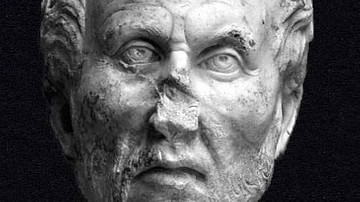
Definition
Plotinus
Plotinus (c. 204-270) was a Platonic philosopher born in Lycopolis, Egypt. Although the story of his life was written down by his student Porphyry, few biographical details are included because Plotinus rejected the physical world of appearances...

Definition
Babylon
Babylon is the most famous city from ancient Mesopotamia whose ruins lie in modern-day Iraq 59 miles (94 km) southwest of Baghdad. The name is derived from bav-il or bav-ilim, which in Akkadian meant "Gate of God" (or "Gate of the Gods"...
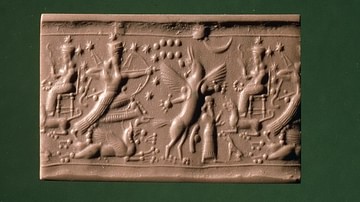
Definition
Ninurta
Ninurta (identified with Ningirsu, Pabilsag, and the biblical Nimrod) is the Sumerian and Akkadian hero-god of war, hunting, and the south wind. He first appears in texts in the early 3rd millennium BCE as an agricultural god and local deity...

Definition
Coup of 18 Brumaire
The Coup of 18 Brumaire (9-10 November 1799) was a bloodless coup d'état in France that overthrew the government of the French Directory and replaced it with the French Consulate. The coup brought Napoleon Bonaparte to power and, in the view...

Definition
Nineveh
Nineveh (modern-day Mosul, Iraq) was one of the oldest and greatest cities in antiquity. It was originally known as Ninua, a trade center, and would become one of the largest and most affluent cities in antiquity. It was regarded highly by...
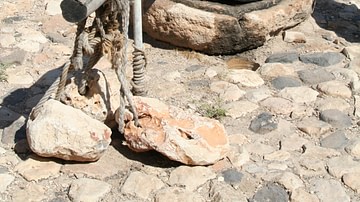
Definition
Ancient Israelite Technology
Technology enabled ancient Israel, the Northern Kingdom excluding Judah, to be economically prosperous and establish itself as a major political power as early as the 10th century BCE, steadily growing until its destruction in 720 BCE. Some...
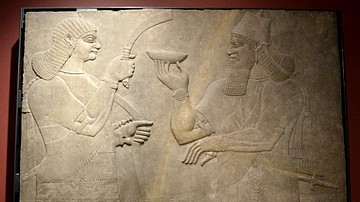
Article
The Greatest Party Ever Thrown: Ashurnasirpal II’s Kalhu Festival
The greatest party ever thrown in antiquity is the inaugral event thrown by Ashurnasirpal II (r. 884-859 BCE) in 879 BCE at the completion of his new city of Kalhu which was attended by almost 70,000 people who were served, among other treats...

Definition
Assur
Assur (also Ashur, Anshar) is the god of the Assyrians who was elevated from a local deity of the city of Ashur to the supreme god of the Assyrian pantheon. His attributes were drawn from earlier Sumerian and Babylonian deities and so he...
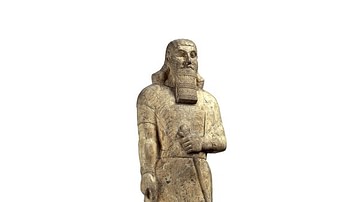
Definition
Ashurnasirpal II
Ashurnasirpal II (r. 884-859 BCE) was the third king of the Neo-Assyrian Empire. His father was Tukulti-Ninurta II (r. 891-884 BCE) whose military campaigns throughout the region provided his son with a sizeable empire and the resources to...

Definition
Edo Period
The Edo period refers to the years from 1603 until 1868 when the Tokugawa family ruled Japan. The era is named after the city of Edo, modern-day Tokyo, where the Tokugawa shogunate had its government. It is also sometimes referred to as the...